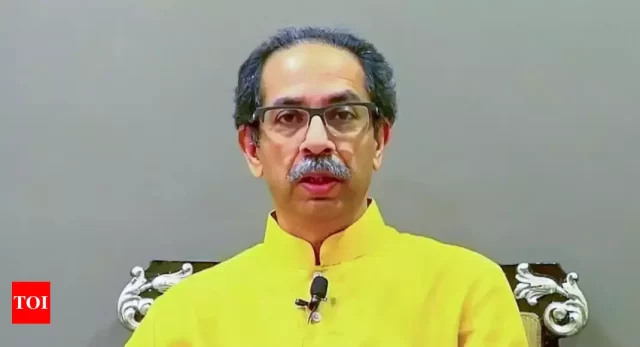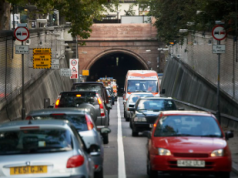Once considered the pinnacles of his political career, his choices to voluntarily leave the CM’s official house while being serenaded by Shiv Sainiks and to quit before the floor test. Now, the SC order claims that it also sealed his government’s demise.
On June 23 last year, in a very public display of renunciation meant to showcase that he was not hankering for power, the then Maharashtra Chief Minister and Shiv Sena chief Uddhav Thackeray left the CM’s residence Varsha for his family home, after an emotional speech in which he said he was willing to resign.
Wednesday night was deemed one of the highpoints in Uddhav’s political career, as hundreds of Shiv Sainiks, braving the Mumbai rains thronged a 15-km stretch to watch their chief minister relocate from his official residence at Malabar Hills to his home Matoshree in Bandra, and pledged their support to the party, which faced a vertical split following a revolt led by Eknath Shinde.
A week later, on June 30, a day before he was to face a floor test in the Maharashtra Assembly, Uddhav, in a 15-minute public address made to the residents of the state, announced he was resigning from his post. “It’s an unfortunate aspect of democracy that heads are only used to count who has the majority. I’m not interested in this,” he said in his speech, as he announced his resignation.
Nearly 11 months down the line, Uddhav’s words and abrupt action of handing over his resignation have come back to haunt him, with the Supreme Court on Thursday stating that it could have reinstated him as the CM had he faced a floor test and not resigned on his own, following the rebellion by a group of Shiv Sena lawmakers led by Eknath Shinde.
uddhav’s act had also been questioned by his senior allies in the Maha Vikas Aghadi (MVA) alliance at the time, including NCP chief Sharad Pawar and Congress leader Prithviraj Chavan, who said he took the decision without taking them into confidence.
Even last month, Pawar told a Marathi news channel: “Thackeray had the right to quit, but you end up facing the consequences when you take decisions without consultations. He quit without any discussion with allies.”
While it is still not clear whether things would have been different if Uddhav had decided to slug it out and face a vote of confidence in the Assembly, or if such an event then would have made it easy for the Supreme Court to restore his government, Uddhav himself has remained unapologetic about his decision to resign.
“It may have been a wrong decision legally,” he said, following the Supreme Court order. “However, morally I did not want to win a vote of confidence from people who were given so much by my father and the party. I was not ready to face a vote of confidence from traitors who betrayed us,” he added.









